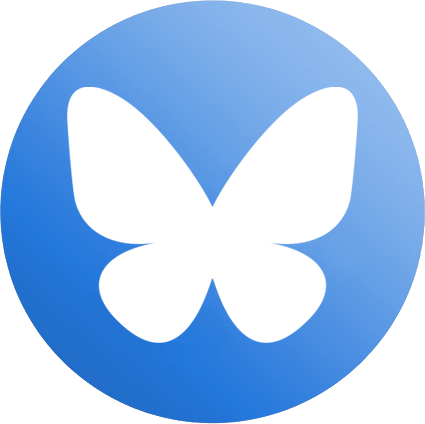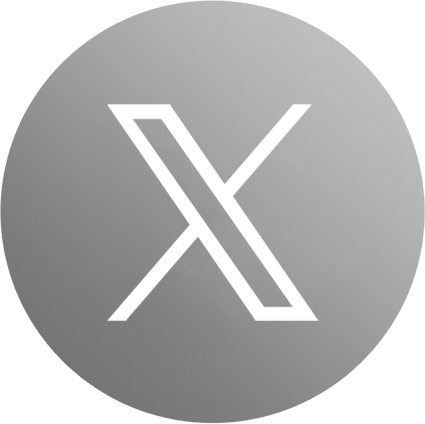Grad Student/Early Career Resources
On this page you will find graduate student and early career job and fellowship links, shiptime opportunities, and helpful articles and websites. If there is some information you would like us to include on this page, please send us a note.
Employment Links
Fellowships and Scholarships
- AAAS Science and Technology Policy Fellowships
- American Association of University Women Fellowships
- ASLO Early Career and Student Resources
- California Sea Grant State Fellowship
- DOE Office of Science Graduate Student Research (SCGSR) Program
- EPA Office of Research and Development Postdoc Research Program
- Ford Foundation Fellowship Programs
- Hall-Bonner Program for Minority Doctoral Students
- Hispanic Scholarship Fund
- International Seabed Authority Endowment Fund (developing countries)
- John A. Knauss Marine Policy Fellowship
- Link Foundation Ocean Engineering & Instrumentation PhD Fellowship
- NASA Interns, Fellows, and Scholars
- NRC Research Associateship Programs
- NOAA Climate & Global Change Postdoctoral Fellowship Program
- NOAA Coastal Management Fellowship
- NOAA Explorer-in-Traning Program
- NOAA Fisheries Sea Grant Fellowship
- NOAA Dr. Nancy Foster Scholarship Program
- NOAA MPOWIR Internship
- NSF Faculty Early Career Development Program (CAREER)
- NSF Graduate Research Fellowship Program
- NSF Graduate Research Internship Program
- NSF Graduate Research Opportunities Worldwide
- NSF Research Traineeship Program
- Office of Naval Research Young Investigator Program
- POGO-SCOR Visiting Fellowships
- Schlanger Ocean Drilling Fellowship Program
- Smithsonian Fellowship Opportunities
Ship Time and Fieldwork Opportunities
Oceanography Career Profiles
Read nearly 100 career profiles of marine scientists who have pursued successful and fulfilling careers outside of academia. These profiles discuss the career paths taken, decisions made along the way, and job satisfaction, and provide advice on job searches.
Articles, Blogs, and Books of Interest
- Life and Science at Sea: Advice for your First Scientific Research Cruise from Experienced Oceanographers by Meg Yoder, 2025
- Finding a Thesis Topic by Peter J.S. Franks
- Envisioning and Writing a Thesis Proposal by Peter J.S. Franks
- I Struggled in Grad School—Until I Learned to Set Realistic Goals by S.R. Lee, Science, August 27, 2020.
- How to (Seriously) Read a Scientific Paper by Elisabeth Pain, Science, March 21, 2016.
- Why Your Scientific Presentation Should Not Be Adapted from a Journal Article by D. Rubenson, Nature, November 20, 2020.
- Do You Dread Giving Talks? Turn Fear into Joy with These Four Keys by A.G. Levine, Science, November 11, 2020.
- How to Secure a Postdoc Position—Advice from Postdocs. University of Washington Career Center
- How to Apply for Postdoctoral Positions and Choose the Right One. Brains Explained blog.
- How to Find the Right Place for Your PhD or Postdoc by Elisabeth Pain. Science, September 10, 2018.
- Graduate School Should Be Challenging, Not Traumatic. In this article published in The Chronicle of Higher Education, doctoral student Kathryn R. Wedemeyer-Strombel describes the difference between a “challenging” vs. “toxic” environment and offers some suggestions on how to best navigate it.
- Portrait of an Inessential Government Worker. In this engaging article published in Bloomberg Opinion, Michael Lewis writes about the career of Art Allen, “the lone oceanographer inside the US Coast Guard’s Search and Rescue division.”
- Why Can’t Scientists Talk Like Regular Humans? In this Scientific American blog post, third-year Harvard graduate student Katherine Wu talks about how thinking of the gen-eral public as “other” compromised her ability to be an effective communicator.
- Networking for Young Scientists: How to do it and why you should. By Richard Threlfall, Digital Project Manger, Wiley
- 10 Tips for Easier Networking at Scientific Conferences. By Samantha Yammine.
- Commentary: Lessons Learned from Leaving Academia. In this commentary published in Physics Today, Elizabeth Frank elaborates on her career and three important lessons she’s learned from leaving academia.
- Novelist Cormac McCarthy’s Tips on How to Write a Great Science Paper. In this Career Column in the journal Nature, Van Savage and Pamela Yeh condense and share Cormac McCarthy’s advice for writing scientiftic papers.
- How To Transition from College to Grad School. Michael J. Douma of Georgetown University provides some advice on how to become a scholar.
- An Open Letter to New Graduate Students. In this helpful ProfHacker blog post aimed at students beginning a PhD program, Brian Croxall makes “explicit the unwritten rules, norms, and quirks of academia.”
-
Making the Most of Your Summer Internship. In a GradHacker post, Andrew Bishop talks about lessons learned from past internships.
-
Goal-Setting vs. Goal-Achieving. In this blog post from GradHacker, Katie Shives talks about how to stay on track in graduate school when thrown into an open-ended project.
-
How to Correspond with Potential Graduate School Advisers. Read this helpful Clastic Detritus blog post by Brian Romans, a geology professor at Virginia Tech.
-
Managing Your Advisor. The most helpful habits to develop in working with your advisor. In this blog post from GradHacker, author Katie Shives talks about the concept of “managing up” your advisor.
-
Graduate Students: Working With Your Faculty Adviser. Post from the University of Washington College of Education.
-
How to Get the Mentoring You Want: A Guide for Graduate Students. From the Rackham Graduate School, University of Michigan.
-
How to Obtain the Mentoring You Need: A Guide for Graduate Students. Helpful pages from the University of Washington Graduate School.
-
Lewis, N.A. Jr., J. Gruber, J.J. Van Bavel, and L.H. Somerville. 2019. Three tips for giving a great research talk. Science, https://doi.org/10.1126/science.caredit.aax7352.
-
Mental Health in the Sciences. Nature series offering stories and advice on how to maintain good mental health in the hyper-competitive science environment.
- Boss, E. 2018. Advice for young scientists on fruitful membership in the scientific community. Oceanography 31(2), https://doi.org/10.5670/oceanog.2018.203.
- Fiske, P. 2018. Why scientists need to market themselves. Nature 555:275–276, https://doi.org/10.1038/d41586-018-02747-y.
- Shorr, A. 2017. Grad School is hard on mental heath. Here’s an antidote. Chronicle of Higher Education.
- Gaudet, A.D. 2015. Secrets to thriving in grad school. Science, https://doi.org/10.1126/science.caredit.a1500019.
- Glessmer, M.S., A. Adams, M.G. Hastings, and R.T. Barnes. 2015. Taking ownership of your own mentoring: Lessons learned from participating in the Earth Science Women’s Network. Pp. 113–132 in The Mentoring Continuum: From Graduate School Through Tenure, G. Wright, ed., Syracuse University Graduate School Press.
- Parsons, Chris: 10 tips for grad students to make the most of a scientific conference. Southern Fried Science (blog)
- Parsons, Chris: Tips for writing a good abstract for a scientific conference. Southern Fried Science (blog)
- Böttjer, D., S.P. Jungbluth, R. Boiteau, B. Burkhardt, F. de Leo, and B.C. Bruno. 2014. Career choices in marine and environmental sciences: Navigating a sea of options. Oceanography 27(2):201–207, https://doi.org/10.5670/oceanog.2014.35.
- Bonetta, L., ed. 2006. Making the Right Moves: A Practical Guide to Scientific Management for Postdocs and New Faculty. Second edition. Burroughs Wellcome Fund and Howard Hughes Medical Institute, 256 pp.
- Cook, S.B., and N.H. Marcus, guest editors. 2016. Oceanography special issue on Graduate Education in the Ocean Sciences.
- Reis, R.M. 1997. Tomorrow’s Professor: Preparing for Careers in Science and Engineering. Wiley-IEEE Press, 436 pp.
- The Oceanography Society. 2005. Scientifically Speaking: Tips for Preparing and Delivering Scientific Talks and Using Visual Aids, 24 pp.
- Yoder, J. 2016. Non-academic career opportunities for MS and PhD ocean scientists. 3 pp.
Oceanography Student News Archive
These issues included a regular column from the TOS student representative, links to career profiles of non-academic oceanographers, profiles of TOS student subcommittee members, and information on student activities planned for the upcoming scientific meetings.
Other Useful Links
- An Individual Development Plan helps you explore career possibilities and set goals. Get started at this Science Careers web page.
- MPOWIR (Mentoring Physical Oceanography Women to Increase Retention) Career Profiles
- OSM 2014 Early Career Workshop presentations: Keys to proposing, conducting, presenting, and publishing your research
- Mentoring Physical Oceanography Women to Increase Retention is a community-based program that provides mentoring to physical oceanographers from late graduate school through their early careers.
- MS PHD’S: Minorities Striving and Pursuing Higher Degrees of Success in Earth System Science provides students with professional development opportunities, science exposure, networking opportunities, and mentoring relationships.
- Resources for the Development of Early Career Scientists on the Howard Hughes Medical Institute website.

© 2026 The Oceanography Society
1 Research Court, Suite 450-117, Rockville, MD, 20850, USA | Phone: (1) 301-251-7708 | [email protected] | Privacy Policy





